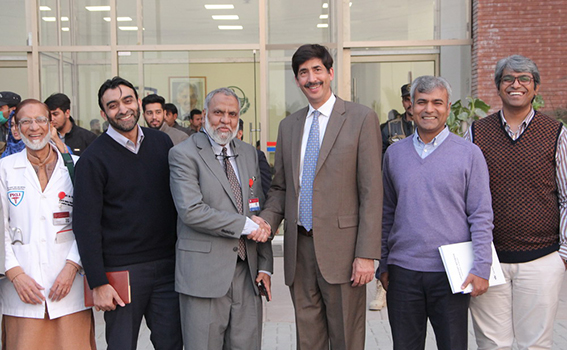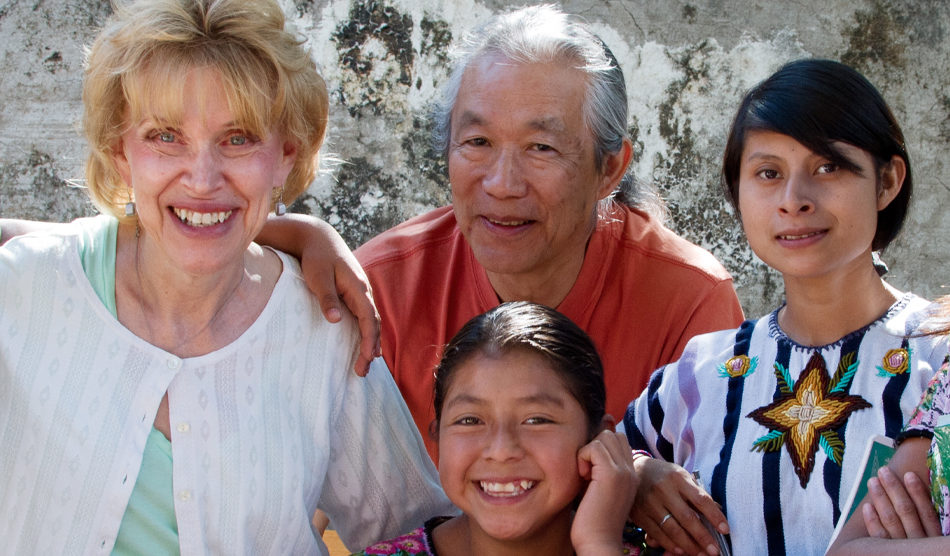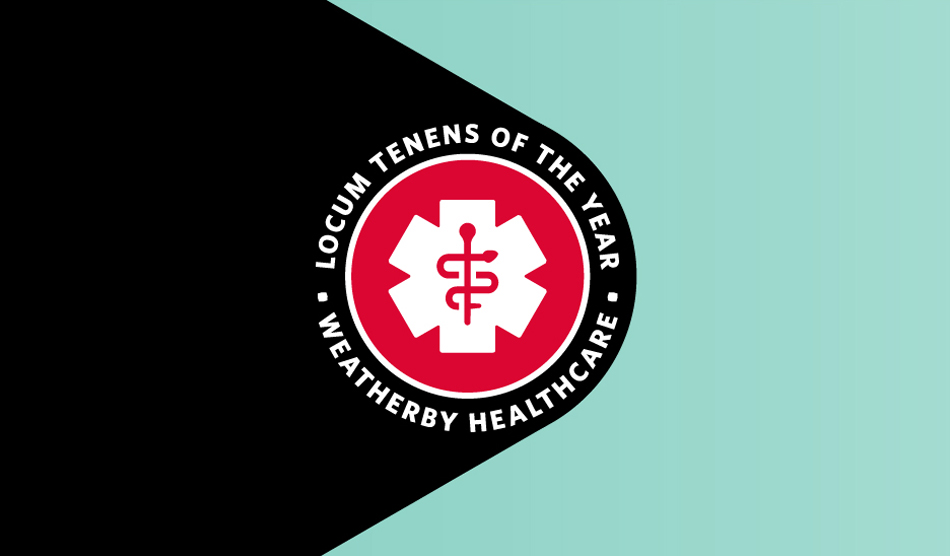Locums doctors improve the lives of millions of patients every year. Here are the stories of two locums physicians who have taken their mission to help people beyond the examination room and are making a difference around the world.
Building a hospital to serve the poor in Pakistan
Dr. Saeed Akhter is a urologist who has worked locum tenens for nearly 19 years. Prior to working locums, Dr. Akhter was heavily involved in academic medicine. He chaired the Department of Urology at Texas State University Hospital for many years before moving back to his home in Pakistan. It was that return that ultimately changed the trajectory of Dr. Akhter’s career and has since helped tens of thousands of people get healthcare they otherwise couldn’t afford.
Dr. Akhter was deeply affected by seeing the burden of poverty and disease on the people of Pakistan. One thing that especially bothered him was seeing poor patients die or seek help late in the course of their disease because they didn’t have money to pay for care.
“That was very upsetting for me, and I decided to stay back there and do something about it,” he says.
Dr. Akhter and some of his friends went to work planning and building a hospital that would serve underprivileged patients for free. The Pakistan Kidney Institute (PKI), which operates as part of Shifa International Hospital in Islamabad, opened in 2004. Remarkably, 90 percent of the patients treated at the PKI since it opened have been treated at no cost.
Due to the increasing number of cases at the PKI and the desire to expand services, Dr. Akhter began looking at options for an independent facility that could accommodate more patients. He met with government officials and was invited to establish the hospital at Lahore (the second-largest city in Pakistan) and expand services to treat liver diseases. The government provided 60 acres of land and $200 million in funding to build the hospital, and in 2017, the first phase of the Pakistan Kidney and Liver Institute and Research Center was inaugurated.
Flexibility to pursue his passion
Dr. Akhter spends nine months of the year working at the hospital in Pakistan and the other three months doing locums and spending time with his family in the United States. He says he was “sort of struggling to see how things could work” when he went back to Pakistan as a locums doctor, but over time, his job became his passion.
“I started looking at options, and obviously, locums was a good option where I could come back here, attend the conferences, still do locums, and meet some friends,” Dr. Akhter says.
He says the flexibility locums gives him is ideal for his life circumstances and allows him to do what he loves.
“Four years ago, I told this to the chief administer of my job about the hospital — that this is what I’m doing and I want to do this on a bigger scale. He was very kind and he gave me a piece of land and some money to construct a hospital,” Dr. Akhter says.
Since its construction, Dr. Akhter’s hospital has provided services for more than 150,000 people.

From urologist to sociologist
Dr. Theodore Ning had been working as a urologist for 20 years when he made what he calls “an unusual move” and decided to retire.
“My partners were all shaking their heads, saying, ‘You’ll be back. We’re going to leave the door open for you for two years. You’ll be bored. All your friends are here,’” Dr. Ning says. “I was age 50 when I said, ‘There’s something else I have to do.’”
That “something” ended up being a non-profit called Friendship Bridge that is radically changing the lives of young women and families all across the world. During his time as a urologist, Dr. Ning was sent to Vietnam as a U.S. Army doctor, and he says his experiences in Vietnam opened him up to a “whole new frontier” of projects and problems to solve, including meeting the medical needs of the people of Vietnam.
In 1988, Dr. Ning and his wife Connie Ning traveled to the country and founded Friendship Bridge, a project initially aimed at providing medical education and supplies to impoverished and war-torn areas in the world.
“I realized at a particular point when I was doing this that I was enjoying more what I was doing in Vietnam than I was actually doing in practice,” Dr. Ning says. “That wasn’t saying the practice was bad. I was busy, but this other door opened, and I realized I actually had more skills in the area of being a sociologist than I did as a urologist.”
Sustainable solutions to poverty
In 1994, Friendship Bridge shifted its focus from medical supplies to microcredit, offering small loans to impoverished indigenous women who can then use them to start businesses and address their own sustainable solutions to poverty. Dr. Ning retired from his urology practice in 1995, and three years later, Friendship Bridge’s work shifted to Guatemala. In 2022 alone, the Nings have reached more than 33,000 women through their Microcredit Plus program.
“We’ve learned to go into communities and identify what is working, what are their strengths, and then gathering on those strengths and building on those strengths and creating programs that are seen by the community as their own,” Dr. Ning says. “It’s really about as much coaching and about seeing problems not from the Western perspective but from a villager’s perspective.”
Currently, Dr. Ning and Connie Ning travel to Guatemala twice a year and work hard to raise money for Guatemalan girls to attend university. Dr. Ning’s son runs the Guatemala project and has built a three-million dollar school there staffed by trained teachers from Guatemala. According to Dr. Ning, the students in the classroom “never see a foreign face.” They see an indigenous woman who looks just like them, speaking in Spanish, but using really advanced ideas of what education should be like on an international level.
“It kind of reminds me of a big rocket,” Dr. Ning says. “We got it off the pad, aimed it in the right direction, and what our son is doing is he’s taking on the second stage, which is to really influence girls education in Guatemala at a much higher level.”
Returning to medicine part time
Dr. Ning didn’t give up medicine entirely to advance his family’s nonprofit work. He enjoys it too much, and it’s become an invaluable part of his career. Dr. Ning volunteered at the VA for several years following his retirement and then transitioned into locum tenens work. He’s a clinical professor who trains residents and works on private assignments for about 84 days of the year. He then devotes the rest of his year to providing assistance for nonprofits. Working as a locums doctor allows Dr. Ning to choose the schedule he prefers and network for his projects while earning an income.
“It’s really been incredibly beneficial,” Dr. Ning says.
One of the things he enjoys the most about working in locums is the people. “I’ve really enjoyed meeting people, and it seems like every state, every regional hospital is kind of battling the same problems,” Dr. Ning says. “To me, it’s been very enjoyable just with the patients I’ve met and the staff that I’ve worked with. People are just appreciative.”
Do you know a locums who is doing great things? Share their story in the comments below. To learn more about how locum tenens can help you pursue your passion, give us a call at 954.343.3050 or view today’s locum tenens job opportunities.


